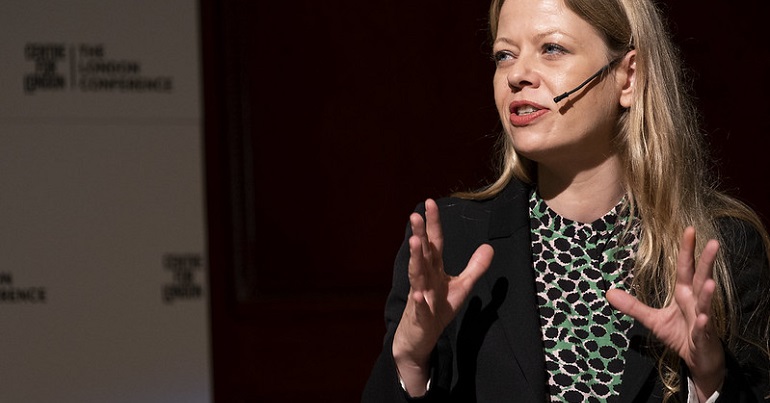Why I’m no Longer Listening to Spotify
Last week saw the passage of the Digital Economy Bill, now the Digital Economy Act. As parliament was winding down before dissolution the government forced through the bill, which had had no proper debate in the commons, during what’s known as it’s wash up period. Though 236 MPs voted at the third reading only around 5% actually turned up for the debate. As it was put on twitter at the time this was a bill “proposed by the unelected, debated by the ignorant and voted on by the absent”. If you wanted a good example of what’s wrong with our political system, you could hardly ask for anything better. This was a bill proposed by an unelected second chamber, which had only the briefest of debate by an anyone with any sort of democratic mandate, forced through at a time when few people who didn’t already know about it would be interested. A bill that totally fails to understand the importance of internet access or the nature file-sharing. A bill that capitulated entirely to corporate interests and faced no series opposition within parliament.
Now, I don’t want to denigrate the good work done by those MPs who turned up to oppose the bill but they were, unfortunately, few and far between. Only 5% of Tory MPs even turned up to the vote, and half of them voted in favour, including shadow minister Adam Afriyie. The Lib dems, to their partial credit, did universally oppose the bill at third reading, but fewer than 30% of them bothered to turn up to cast a vote, Huhne, Clegg, Cable – all missing. The majority of the opposition actually came from within the Labour back benches, with special mention going to Tom Watson. But when bills going through parliament are facing their strongest opposition from the government’s own back benches there’s clearly something wrong with the quality of the opposition.
So what next? Well I, for one, will be looking to support candidates who unambiguously back repeal and reform. Who understand the problems with our current copyright and patent law and would act to redress the balance of power between corporations and people. If your MP was one of the 47 who voted against the bill and you haven’t already done so write to them and let them know you’re grateful for their support, and if they weren’t let them know you’re disappointed. Find out where the PPCs for the other parties stand on the issue and make they know this’ll be an issue that sways a lot of voters minds. If there are Green or Pirate candidates in your constituency – and in many there’ll be Greens, I can’t say I know for sure how many candidates the Pirate Party will be standing – why not donate your time or money to supporting them; parties with a track record of defending digital rights both here and in Europe.
If you’re looking for a more direct approach, there are a number of campaigns you can join too. There’s already a movement to boycott the BPI (British Phonographic Industry) and support independent artists and labels. BPI radar can tell you which are safe if you want to take part in that. And stars of the IT crowd the Open Rights Group and avalanche enthusiasts 38 degrees have also been doing some great work mobilising people in the campaign to oppose the bill. Myself, I’ll be cancelling my subscription to spotify and donating the savings to the ORG. I hope some of will do likewise.




“Why I
Generally a very good article – although speaking as someone who lives in one of the view seats where the Pirate Party are standing, and fully intends to vote for them, I would say that wouldn’t I.
I just want to take slight issue with your line about the bill being “proposed by an unelected second chamber”. Although that’s technically true it’s also somewhat misleading. Bills are proposed by the government and then, to prevent the legislative timetable becoming too clogged up, some start in the Commons, whilst others start in the Lords, so you shouldn’t read anything in to it that it started in the Lords.
In fact, and this is the uncomfortable truth that many people don’t want to admit, its the Lords that are actually more liberal than the Commons. Peers are a lot free-er to vote and and debate on their conscience, rather than beholden to the Whips. Most of the debate on the Digital Economy Bill in the Lords was far more probing and critical than the nod through it got in the Commons.
It’s uncomfortable to balance the idealism that says a unelected house is fundamentally undemocratic, with the realism that notes that time and time again, whether it be on 42 days, ID cards, and now on the Digital Economy Bill, the Lords is far better at standing up for our human rights and civil liberties than the supposedly “democratic” chamber.
Sorry, that went on a bit longer than planned!
So you’re boycotting all BPI related content? That’s pretty tough considering every tv show, movie and most radio has bpi material. Not sure why you take it out Spotify, who aren’t perfect but at least seem to be trying to give consumers what they want unlike the labels.
While I take on board those comments about spotify being a reasonable, if not perfect sevice, I do think it’s reasonable to include it in the bpi boycott. No consumer boycott is ever going to be easy to define around the edges and there’ll be disagreements about who to include or not but spotify is owned, at least in part, by the major record labels who have been instrumental in pushing this legislation. I did have an account with Spotify, so although I’m slightly unsure about their service, in general I think it’s not bad, as Jamie says if the industry offered a decent DRM-free service at a reasonable cost people would take that up. People who pirate films and music also buy a lot. With regards to TV shows, radio etc, I think that’s a bit of a red herring, the boycott is about who we choose to buy music from. I’m paying money directly for the service of listening to music when I sign up to spotify, I’m not doing that when I watch TV. I’m not saying I won’t listen to BPI related content, I’m not going to stop listening to records I own already or switching tv channels if an advert comes on with the wrong backing track, but I won’t buy anything more from BPI labels while they’re pushing draconian legislation like the DEAct.
Interesting piece, and although I share your anger and appreciate the sentiment behind cancelling your Spotify subscription though, I think realistically it still represents our greatest hope.
My real anger at the DE bill betrayal is that a lot of the earlier sweet talk and rhetoric was around asking BOTH sides to play fair – namely, getting tough on the industry and demanding a reasonable subscription model for music going forward.
The industry knows what we want: unlimited music, DRM-free, for a monthly subscription of around £10-15 per month. I and scores of others from around the internet believe such an approach would bring pirates flocking back to legal music, particularly post-DE; who wants to worry about legal trouble and disconnection constantly because of being too tight to part with a tenner for what amounts to countless hours of amusement?
Spotify is *so* close to the model we can almost taste it. If they could just sort out the portability of their music with a true cross-platform solution (instead of all these separate mobile apps that are still excluding huge percentages of their users’ devices) we’d finally have a fair dear for consumers.
Sadly for now it looks like they’re in a bit of a catch 22. Spotify continue to haemorrhage cash because they’re failing to convert the free brigade into premium users, in large part because of the DRM limitations inherent in the program. The revenue they do generate from adverts gets divvied up into pitiful chunks of loose change which goes back to the labels. The labels howl at their meagre share and refuse to consider opening up DRM. And so it continues…
Perhaps, I should have made that clearer. Sorry. As part of my boycott of the BPI and it’s member labels I’m no longer giving spotify any money as they pay those labels; I believe some also have shareholdings in spotify. I will now only pay independent labels directly or through independent retailers.
I’m slightly in the dark here. You didn’t mention Spotify’s role in this.